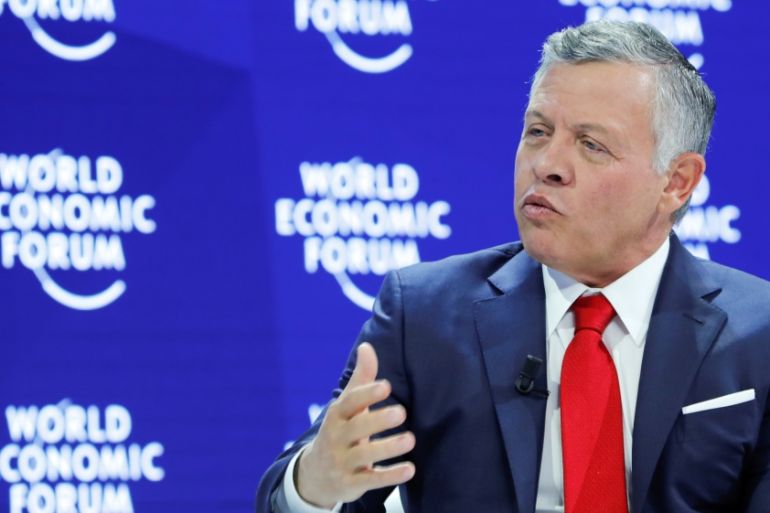Iran blasts Jordan’s king over ‘unfair’ statement
Iranian FM rejects comments made by King Abdullah II, who said the country was ‘meddling in the region’.

Iranian foreign ministry spokesman Bahram Ghassemi has rejected remarks made by the Jordanian monarch on the country’s foreign policies, describing them as contrary to the reality on the ground.
On Sunday, Ghassemi said in a statement that King Abdullah II’s comments on Iran’s regional influence does not accurately reflect its role as peace promoter and stabiliser in the Middle East.
“Such unfair statements cannot deny Iran’s stabilising role, relentless efforts in fight against terrorism and its contribution to establishing security in the region,” Iranian Students’ News Agency (ISNA), quoted him as saying.
“Such remarks only benefit the ill-wishers, occupiers and aggressors who cannot put up with the peace, economic development, territorial integrity and national sovereignty of the states in this sensitive region of the world,” he added.
|
|
Ghassemi went on to criticise the timing of the remarks, which he says come at a difficult and fragile time, while stressing the importance of working to achieve lasting peace.
Last week, King Abdullah II commended Saudi Arabia‘s role in curbing Iran‘s influence, and had criticised Iran’s “meddling in the region”.
“The Saudi policy is to say: the red lines are here,” King Abdullah II said during the World Economic Forum in Davos.
“We believe in Jordan that dialogue is the best way to solve problems, but the policy of Iran poses major challenges in Syria, Lebanon and Yemen.”
Iran’s influence in the region has significantly increased over the past few years, particularly in the context of limiting the expansion and influence of the Islamic State of Iraq and the Levant group (ISIL, also known as ISIS).
In Iraq, Iranian-backed Shia-dominated paramilitaries known as the Popular Mobilisation Forces have been dubbed as the country’s second – and stronger – army, while in Yemen, Saudi remains deadlocked in a war waged since March 2015 against the Iranian-backed Houthi rebels, who have been fighting against the central government.